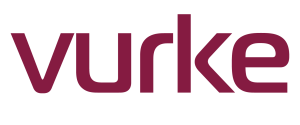table of contents
- The Shift from Traditional to Remote Healthcare Benefits
- Flexibility and Convenience for Employees
- Cost Savings for Employers and Employees
- Improving Accessibility in Healthcare
- Challenges and Solutions in Virtual HR Implementation
- Enhancing Employee Engagement and Satisfaction
- The Future of Remote Healthcare Benefits
- The Role of Vurke in Remote HR Solutions
- Conclusion
How Virtual HR is Reshaping Healthcare Organizations
Remote work has rapidly become the norm in many industries, particularly in healthcare. The ongoing pandemic has accelerated this trend, prompting healthcare organisations to embrace virtual HR teams to ensure the safety and well-being of their employees. This shift is revolutionising the way healthcare benefits are provided, offering new possibilities and flexibility for both employers and employees.
The Shift from Traditional to Remote Healthcare Benefits
In the past, healthcare benefits primarily involved in-office care, which posed barriers for employees, especially those living far from their workplace. Remote work has transformed this model, enabling employees to access virtual care from the comfort of their homes. This shift not only enhances flexibility but also broadens the range of available medical services, including mental health support, which is often lacking in traditional healthcare plans.
Flexibility and Convenience for Employees
Remote healthcare benefits offer several advantages for employees. The flexibility to seek medical attention from anywhere at any time eliminates the need for long commutes or taking time off work. Many organizations are now leveraging telehealth solutions, which facilitate remote consultations, mental health services, and wellness programs through video conferencing and messaging platforms.
Cost Savings for Employers and Employees
The transition to remote healthcare benefits can also lead to significant cost savings. Employers can reduce expenses related to office space and in-person services, while employees save on transportation and out-of-pocket costs for uncovered medical services. This financial efficiency enhances overall job satisfaction and contributes to improved employee retention rates.
Improving Accessibility in Healthcare
One of the most significant impacts of remote work in healthcare is improved accessibility. Employees, particularly those in rural or underserved areas, can access healthcare services without the burden of long-distance travel. This increased accessibility ensures that all employees can receive timely and adequate medical attention, regardless of their location.
Challenges and Solutions in Virtual HR Implementation
While the benefits are substantial, there are challenges associated with implementing virtual HR teams in healthcare. Ensuring that employees can access virtual care without technical issues is critical. Employers must invest in the necessary technology and software while providing training to ensure that staff can effectively utilize these tools.
Moreover, building trust in virtual care providers is essential. Organizations need to collaborate closely with healthcare providers to ensure high-quality services and maintain the confidentiality of employees’ medical information.
Enhancing Employee Engagement and Satisfaction
The integration of remote healthcare benefits positively affects employee engagement and productivity. By offering flexible healthcare solutions, organizations can increase job satisfaction and foster a culture of well-being. Additionally, many companies are adopting virtual wellness programs that include activities like meditation classes and mental health counseling to support their employees.
The Future of Remote Healthcare Benefits
As remote work continues to be a vital part of organizational strategies, the future of remote healthcare benefits looks promising. Advances in technology will likely make virtual care even more accessible and cost-effective. Organizations that adapt to these changes will be better positioned to support their remote workforce.
The Role of Vurke in Remote HR Solutions
At Vurke, we specialize in providing tailored outsourcing healthcare solutions and managed payroll services to help organizations navigate this evolving landscape. Our outsourcing services ensure that healthcare organizations can efficiently manage remote HR teams while delivering comprehensive healthcare benefits. By leveraging our expertise in remote healthcare recruitment and staff augmentation, we support organizations in building resilient, flexible teams that can adapt to the challenges of remote work.
Conclusion
In conclusion, remote work is fundamentally changing the landscape of healthcare benefits. By embracing virtual HR teams and remote healthcare solutions, organizations can provide greater flexibility, accessibility, and cost savings. As more healthcare providers recognize the benefits of remote work, the focus will shift toward implementing comprehensive strategies that prioritize employee well-being in an increasingly digital world.



